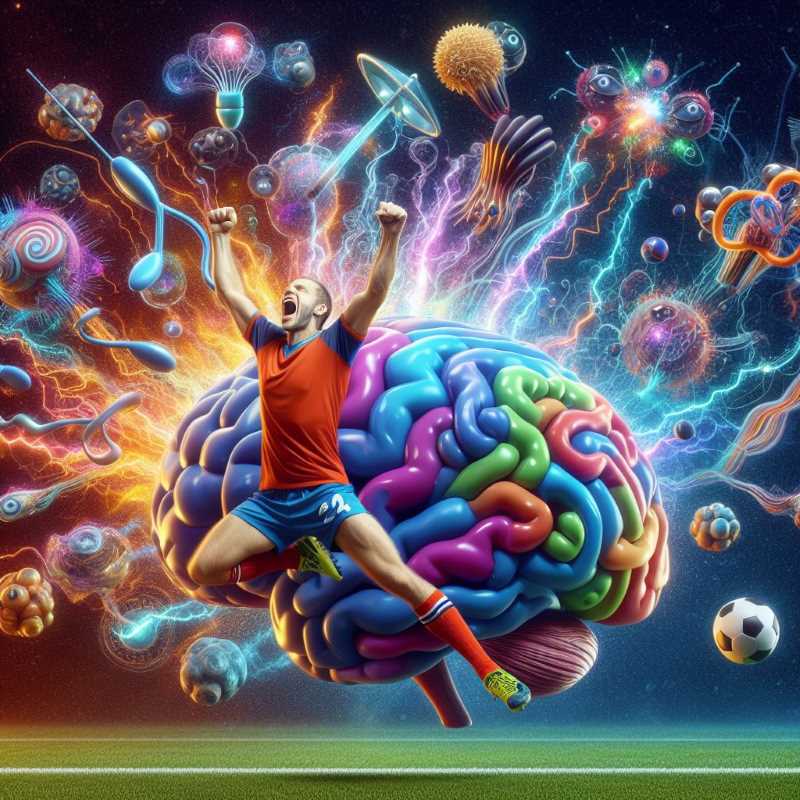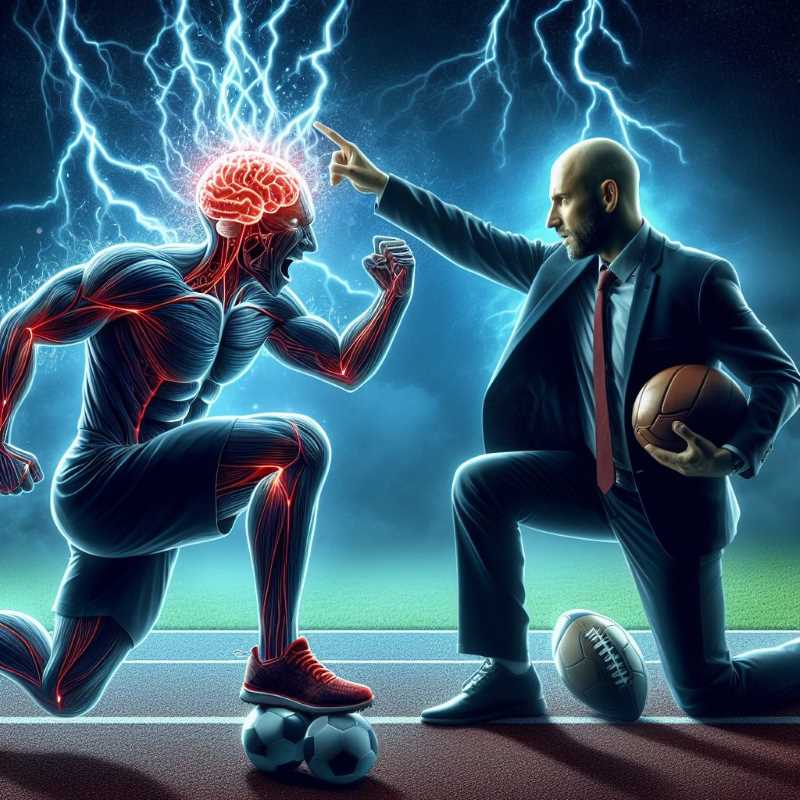The Neuroscience Behind Sports Triumph Explained
Victory is a neurochemical masterpiece! Dr. Sánchez Castillo unveils the brain's dance of dopamine, oxytocin, and euphoria in sports triumph. A brief euphoric encore, etched into memory, where stress and motivation play the lead roles.

In the exhilarating world of sports, victory isn't just about the final score; it's a biochemical explosion that turns the brain into a party animal, according to insights from the Laboratory of Neuropsychopharmacology and Temporal Estimation at the UNAM Faculty of Psychology.
Dr. Hugo Sánchez Castillo, a maestro in the neuroscientific symphony, explains that the euphoria of winning is no random occurrence. It's a carefully choreographed dance between brain regions, a mixtape featuring dopamine, oxytocin, and prolactin that would make even the most discerning DJ nod in approval.
Sánchez Castillo sheds light on the brain's inner workings, describing how victory hits the brain like a wave, temporarily shutting down the prefrontal cortex while throwing a dopamine-fueled party in the limbic system. The result? Complex emotions like pride and euphoria, a neurological fireworks display celebrating success.
But the journey to this euphoric climax isn't a smooth sail. Athletes, even before the big game, are caught in the crossfire of anticipation and stress. The body releases cortisol, the heart races, and the adrenergic system goes into overdrive. It's like the pregame warm-up for the brain – a necessary step before the grand performance.
And when victory finally graces the stage, the brain unleashes a tsunami of those feel-good chemicals. The “rush,” as Sánchez Castillo calls it, is like the encore after an extraordinary concert. It may only last a few hours, but its melody lingers in the memory, creating a lifetime soundtrack of triumph.
Speaking of memory, Sánchez Castillo draws attention to the role of episodic memory. It's not just about winning; it's about remembering that victory, etching it into the annals of personal history. As the saying goes, “remembering is living,” and in the realm of sports, those victorious moments become timeless anecdotes for retired athletes.
But the journey to victory is not all glory; it's a psychological battleground. Stress and motivation engage in a relentless tug-of-war. The coach, the motivator, steps onto the battlefield armed with words that spark the emotional system, injecting a surge of pleasure into the competitors' brains. It's a strategic move in the psychological chess game that sports can often become.
In the grand arena of success, stress and execution waltz hand in hand. Occasionally, the negative stress takes center stage, threatening to steal the spotlight. It's in these moments that the motivational speeches, the pep talks, are put to the ultimate test. The stress can be overwhelming, and as Sánchez Castillo aptly puts it, the noradrenergic and catecholaminergic activation might just say, “You know what, this is it, no more!”

So, the next time you witness a victorious team basking in glory, remember, it's not just a game on the field; it's a spectacular display of neurochemistry, a celebration on the brain's own dance floor, where stress and motivation tango for the ultimate prize. Cheers to the sweet symphony of victory!




